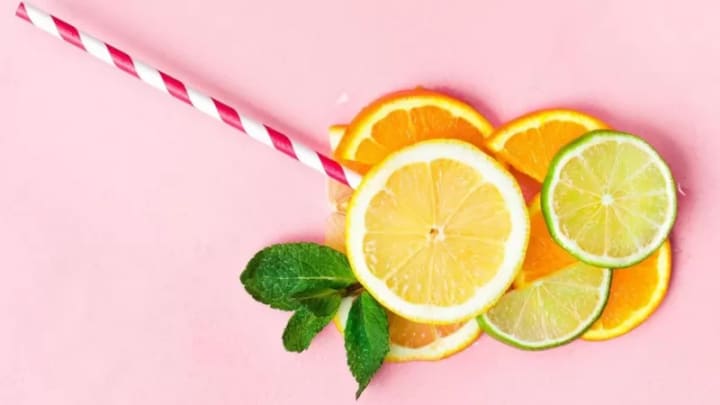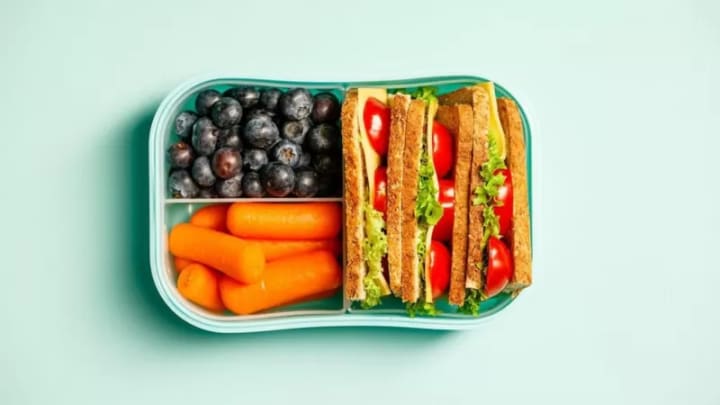Why drinking natural juices is not so good for your health
how to make them healthier

Fresh juices have become a staple of many diets, especially for those busy, health-conscious consumers looking to save some time by making (and maybe even chewing) their food without missing out on nutrients.
Juicing has also been associated with the idea that it can help with weight loss and "detoxify" the body.
All of this has made juicing an extremely lucrative business. In fact, the global fruit and vegetable juice market was valued at $154 billion in 2016 and is expected to grow.
But are juicing really as healthy as we think?
The importance of fiber
"In fruit juices, almost all the fiber is removed," says Emma Elvin, senior clinical adviser to the charity Diabetes UK.
This is why fructose (a natural sugar found in all fruits) in juice counts as "free sugars," a group that includes honey and sugars added to foods.
The problem is that, once the fiber is removed, the fructose in the juice is absorbed more quickly.
Sudden increases in blood sugar cause the pancreas to release insulin to bring it back to a stable level. Over time this mechanism can be depleted, thus increasing the risk of developing type 2 diabetes.

In 2013, a group of researchers analyzed information on the health of 100,000 people, collected between 1986 and 2009.
What they saw is that, because liquids pass from the stomach to the intestine faster than solids, even when the nutritional content is similar to that of the whole fruit, the juices generate more marked and more rapid changes in glucose levels and insulin.
Another study found a link between fruit juice and type 2 diabetes, following the diets and diabetes status of more than 70,000 nurses over a period of 18 years. Again fiber was a possible explanation.
And vegetable juices, while they may provide more nutrients and less sugar, are still lacking in fiber.
High-fiber diets are linked to a lower risk of developing coronary heart disease, stroke, high blood pressure, and diabetes. Adults are recommended to consume 30g of fiber per day.
In turn, the World Health Organization recommends that adults avoid consuming more than 30g of added sugars per day, which is equivalent to 150ml of fruit juice.

General excesses
Analyzing 155 studies, John Sievenpiper, an associate professor in the Department of Nutritional Sciences at the University of Toronto, set out to clarify whether the link between sugary drinks and health—including risk of diabetes and cardiovascular disease—applied to diet as well. food and drinks that we usually consume as part of a healthy diet.
As a result, he found negative effects on fasting blood sugar and insulin levels when foods contained excess calories from sugars, including fruit juice.
However, when there were generally no excess calories, there were some advantages to consuming fruit and even juice.
Sievenpiper concluded that the recommendation of 150ml of juice a day, which is the average measure, is reasonable.
Although we know that fruit juice can cause diabetes if you eat a high-calorie diet, it is less clear how juicing affects the long-term health of those who are not overweight.

" There's still a lot we don't know about how risk changes with increasing dietary sugar without weight gain," says Heather Ferris, an assistant professor of medicine at the University of Virginia.
"How long and how well the pancreas can keep up with sugar depends in part on genetics," he adds.
But we are at greater risk of consuming more than the recommended daily amount of calories (between 2,000 for women and 2,500 for men) on the days we drink juice, according to research.
Numerous studies have shown that drinking fruit juice does not make us eat less throughout the day either.
with a twist
A study published last year may have found a way to make juicing healthier.
The researchers used a 'nutrient extractor' blender that, unlike traditional juicers, extracts the juice from the entire fruit, including the seeds and skin.
They measured the effects of a fruit mix and peeled mango going through a 'nutrient extractor' compared to another group that ate the whole fruit.

Those who took the nutrient extract showed a smaller increase in blood sugar compared to those who only ate the mixed fruits. There were no differences between those who drank the mango juice or those who ate the whole mango.
But this was a small study, and the researchers didn't compare their findings with juices made by some other method, such as squeezing the juice and leaving the skin and seeds on.
Gail Rees, a professor of human nutrition at the University of Plymouth and a researcher on the study, says the findings were likely a result of including the seeds in juices. But she, she adds, it's hard to offer specific advice based on the study.
"I would definitely follow the current advice of 150ml of fruit juice a day, but if you use a nutrient extractor at home this could keep blood sugar levels relatively stable," he says.

The thing is, while leaving the seeds in the juice can aid digestion, Ferris adds that this doesn't necessarily impact how full you are.
"(Leaving the seeds or fiber) is still better than a traditional juice ," says Ferris.
Another way to improve the health effects of fruit juice is to look for ripe fruit to retain as much of its properties as possible, according to Roger Clemens, a professor of pharmaceutical sciences at the University of Southern California.
It's also important to note that there are extraction methods that work better with certain fruits, Clemens discovered.
Grapes, for example, have most of their phytonutrients in the seed and very little in the pulp. And most of orange's beneficial phenolic compounds and flavonoids are found in the peel, which is lost in traditional extractions.

However, the only medically recognized use of the word "detoxification" refers to the removal of harmful substances such as drugs, alcohol, and poison.
In addition, juicing is also not a panacea for nutrients , nor is it the ideal way to meet the 5-fruit-a-day recommendation.
"People try to eat five fruits a day and don't realize that it's not just about getting the vitamins," says Ferris.
"It's also important to reduce grain carbohydrates, protein and fat in the diet and increase fiber."
So while fruit juice is better than no fruit at all, there are limits. The risk is when we consume more than 150ml of sugars a day or when we exceed the recommended calories.
Yes, they have vitamins, but fruit juices are not a quick fix.
About the Creator
Dark Secrets
"Dark Secrets" covers various topics related to parenting, relationships, mysteries, child development, and teen issues. It aims to provide insights and advice on the challenges that parents and teens may face in their daily lives.
Reader insights
Nice work
Very well written. Keep up the good work!
Top insights
Easy to read and follow
Well-structured & engaging content
Eye opening
Niche topic & fresh perspectives
On-point and relevant
Writing reflected the title & theme






Comments (1)
Hey, Faraz! Great one. I am carrying a few perspectives. I hope I get healthier in the true sense. :)